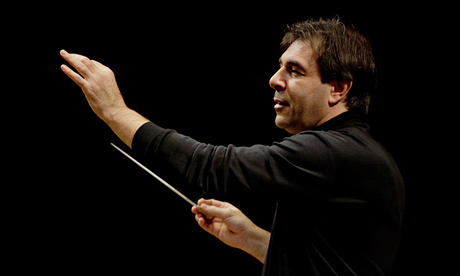
Mahler's seventh symphony remains the least often performed of his purely orchestral symphonies. Over the years, however, it has often been the beneficiary of some of London's most memorable, and most extremely contrasted, Mahler performances, from Leonard Bernstein and Otto Klemperer in the 1960s to Claudio Abbado and Simon Rattle in more recent times. A performance of the seventh is still an event, and Daniele Gatti duly provided another of them.
It was clear from the manner in which Gatti made the London Symphony Orchestra heave even more effortfully than usual into the dark opening phrases of the symphony – which Mahler supposedly modelled on the first pull on the oars of a rowing boat – that this was to be a performance characterised by enormous weight and grip. And so it proved. The opening movement was always tightly controlled, and the energy Gatti drew from the LSO was remorseless. More spacious moments were beautifully played, but Gatti never permitted them to be more than a passing contrast to the tautness and starkness of the overall approach.
There was a similarly claustrophobic feel to the middle three movements, with their explicit nocturnal and at times nightmarish evocations. Other conductors have allowed more space and air into these movements, savouring the extraordinarily imaginative sound world that Mahler created. But Gatti always insisted on keeping the control tight and the textures dark and oppressive, even ensuring that the guitar and mandolin serenades in the schmaltzy Nachmusik II managed to convey a sense of unease and not-so-distant menace.
The logic of this approach was instantly obvious at the start of the finale, where the music emerges from the shadows into the light with a fanfare that evokes the world of Wagner's Meistersinger. In Gatti's hands, however, the brightness and vigour always carried a disturbing glare not a serene glow. It was not the last word on the matter – not even Klemperer managed that – but it was an impressive reminder that, in determined hands, a kind of unity can be imposed on this symphony of such apparently wayward contrasts.

